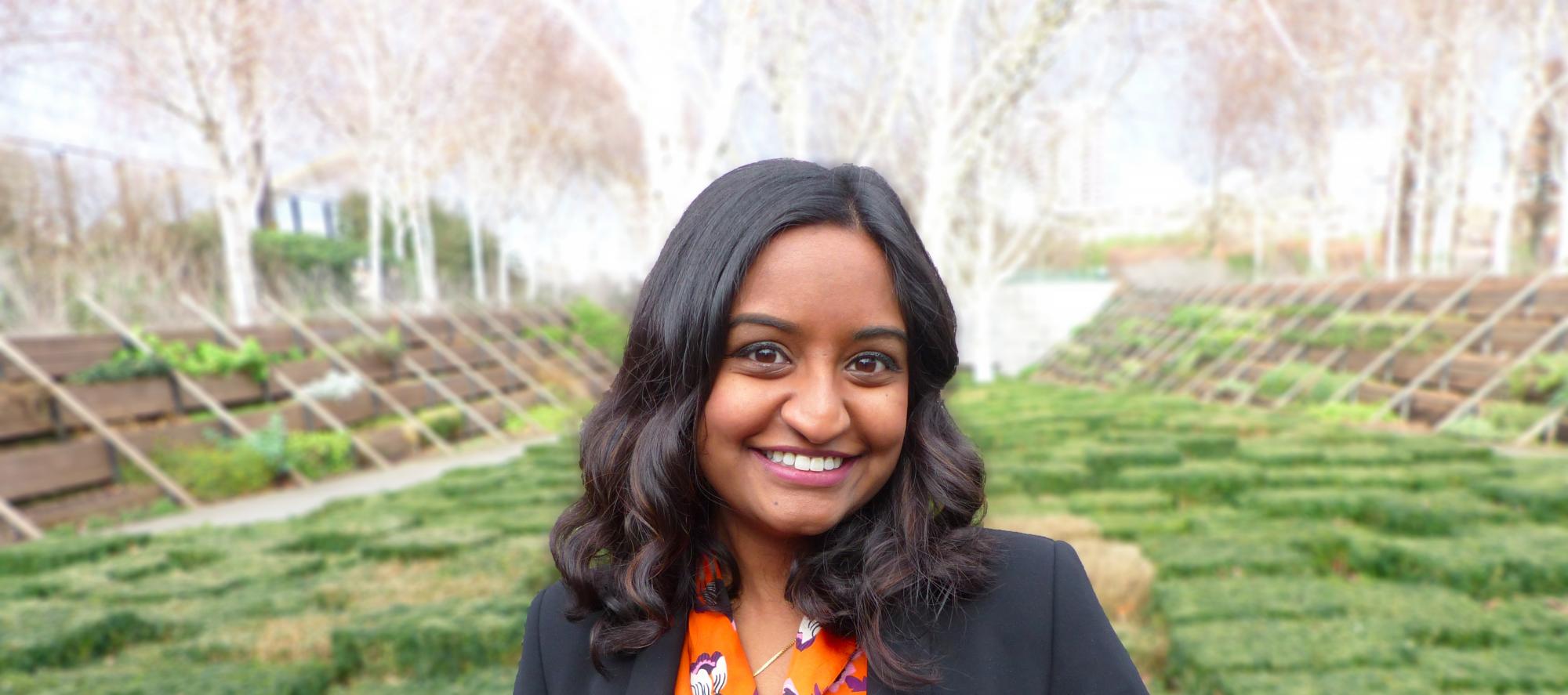Amélie Kanagasabai, a graduate among the 35 positive leaders to watch
Published on 06/18/2024
Thematics :
Amélie Kanagasabai, a graduate among the 35 positive leaders to watch
Published on 06/18/2024
Amélie Kanagasabai, 2018 MiM graduate is among the 35 “positive leaders under 35 to watch” on the list of winners in the 2024 Les Echos START awards. For more than ten years, she has been fully committed to improving equality opportunities and social justice.
We interviewed her in 2021 (Link to article) when she was enrolled in the Orange Graduate Programme, a selective integration track and career accelerator for young graduates. Here we provide an update on her efforts.
You’ve been working at Orange for five years and today you are chief of staff in a B2B entity, communication services. What efforts have you made concerning your commitment to equal opportunities?
When I joined Orange, I wanted to continue with the social efforts I undertook in the student society Article 1 at NEOMA, which mentored me since my time in preparatory courses. I cannot abandon these commitments that are important to my life just because I started working at the company. On the contrary. Since I’m now in a more privileged situation, I want my voice to be heard even more. What drives me is the idea of equality in a broader sense, social justice, and the fight against all forms of discrimination, whatever they may be.
At Orange, I had the chance to express my views on these matters. I co-signed an open letter in the newspaper Les Echos (read below/or link to open letter) I was interviewed during the world equal opportunity day. Day after day, I make sure to object to any racist or sexist remarks. But, in spite of this, it’s not an easy stance to take.
For several years now you’ve been committed to equal opportunities, in a broader sense as you said. What are some of the most discouraging things you’ve observed?
Changes to equal opportunities and social justice don’t progress that quickly! We focus quite a bit on issues of diversity and gender equality, which are very important, but they then obscure other inequalities that are more difficult to discuss, such as socio-economic or ethno-cultural inequalities. These issues then don’t progress at the same speed.
It’s also proven difficult to measure the importance of these issues that are still confined to the CSR sphere. They have few connections with the company’s business and economic aspects, and I see several problems with this. Those who champion diversity say that it will create more competition and value, with less standardised profiles, but no studies have shown this. And if tomorrow ten studies prove the opposite, are we going to stop developing inclusive policies in the company? I think that the company needs to represent society as it is, in its plurality.
On the other hand, what makes you optimistic?
There’s a greater sense of awareness among people from my generation and the younger generation. Even if it’s not only generational, a lot of young people want to become more involved in these issues, and for them, the commitments and values of the company become criteria in their selection. That gives me hope.
Also, when I see the other winners in Les Echos Top 35, I recognise that there is an enormous amount of promising initiatives, whether they are civic, in associations or in companies. It’s a systemic change that can really help reverse the old trends.
To push the boundaries, you’ve organised the Equal Opportunities Convention on 25 April 2024 with the student society Article 1. What is it about?
The secondary title for this event is “inequality of opportunities explained by those who’ve experienced them”. It is set up as a series of round table discussions. In the morning for example, we will discuss the “myth of meritocracy and universalism”. The afternoon will focus on the importance of an inclusive corporate culture, going beyond just recruitment. How do we develop a space where everyone feels comfortable enough to work and develop? We’re also organising experiential workshops, like the march for equality. We’re expecting 150 people and we encourage everyone to come.
During your studies, you met Fabienne, a NEOMA graduate. She was your mentor. You said that she helped you develop your self-confidence. Is that essential for succeeding professionally?
In no case can you succeed alone, even less so when you don’t know have a way in, when you didn’t come from a privileged family or social class. What makes a difference is meeting people, and that occurs through equality opportunity programmes such as the student society Article 1. Yes, mentorship is helpful. I would never say otherwise. But that can only be a workaround in a system where the dice are already loaded and certain people already have more of a chance to succeed. And instead of the term “social climbing”, I prefer the sociological concept of “social emancipation”. Actually, being successful is not just about becoming a company executive. It’s having the means to ask yourself questions about where you are and not just be worried about getting through each month.

